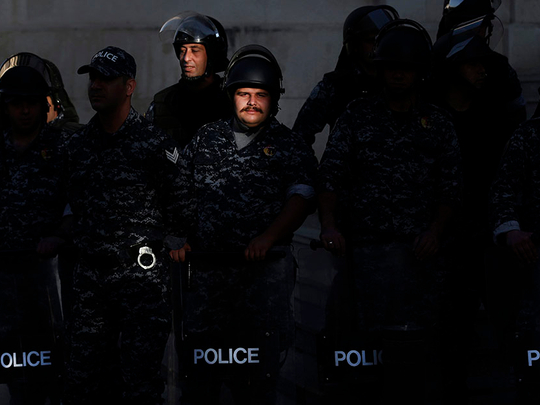
Riyadh: Two weeks into what may very well turn out into a very large financial scandal, initial investigations have revealed that the so-called “illegal internet case” in Lebanon rested on complicity between the Ogero telecommunications company – an official establishment associated with the Ministry of Telecommunications – and figures at private companies.
If the findings prove to be true, the relationship would confirm that Ogero Director-General Abdul Moneim Yousuf was fully involved in the transactions flouting various conflict-of-interest regulations.
Yousuf was allegedly interrogated on Thursday by law enforcement authorities but released on furnishing personal sureties even if he is now prohibited from leaving Lebanon pending the results of several investigations.
According to the pro-March 14 Al Jumhuriyyah daily, several private companies were involved in the scandal, all sharing in the distribution of profits with those importing illegal internet bandwidth. Such schemes bypassed the state, which is the sole party legally empowered to import and distribute internet connections in Lebanon. In fact, the monopoly, which literally translates into some of the highest internet rates in the world for wary consumers, seemingly led to the scandal.
Where the story turned into a Machievellian plot was to when the Director-General of Ogero came under suspicion of cutting deals with private companies for a share of the profits of their illegal activities.
In recent days, accusations against Yousuf were led by Health Minister Wael Abou Faour after the Progressive Socialist Party official claimed that the pro-March 14 protege “is the tip of the iceberg in the corruption organisation at the Telecommunications Ministry”.
The pro-March 8 Al Safir reported on Saturday that Yousuf was called in by General Prosecutor Judge Samir Hammoud who refused to deny or confirm allegations apparently “to respect the privacy of the investigations”. A source close to Yousuf, according to the newspaper, denied that a meeting was held in the first place.
The Telecommunications Minister, Boutros Harb, revealed a few weeks ago that four illegal internet stations have been found in the mountainous terrains of Al Dinniyyah, Ayun Al Siman, Faqra and Zaarur.
Harb, a former presidential candidate, saw his credibility questioned by many after several suspects allegedly involved in the case and believed to be associated with the state-owned Ogero were arrested which, to put it mildly, is an indication of benign neglect.
Observers wondered whether Harb was aware of what Yousuf was up to.
After the “discovery” of the illegal connectivity in March, a parliamentary committee unravelled what it described as a “mafia” taking advantage of internet services by installing stations not subject to state controls. The owners of these stations apparently purchased bandwidth at nominal costs from Turkey and Cyprus and, in turn, marketed it to subscribers at substantially reduced prices.
Given that the Ministry of Telecommunications generates between $1.2 billion and $1.5 billion to the state each year, or roughly ten per cent of all official revenues, any losses would affect the country’s budget, which has recorded deficits for years on end. What is bizarre is how officials entrusted state interests have privately hit upon various mechanisms to line their pockets.












